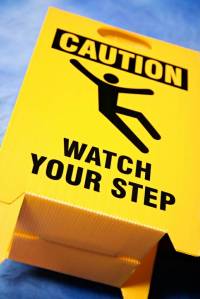Federal law requires hotels to give people with mobility issues access to their properties, including allowing them to use devices other than wheelchairs as long as they do not raise legitimate safety concerns. The type, size and speed of the device, along with the amount of pedestrian traffic all factor into the decision.
 One major change deals with the information available to people making room reservations. The idea is that people with disabilities should be able to book hotel rooms with the same efficiency, immediacy and convenience as those who do not need accessible guest rooms. The provision applies whether people are making reservations by phone, in person, on a website or though a third-party provider such as a travel agent or OTA.
One major change deals with the information available to people making room reservations. The idea is that people with disabilities should be able to book hotel rooms with the same efficiency, immediacy and convenience as those who do not need accessible guest rooms. The provision applies whether people are making reservations by phone, in person, on a website or though a third-party provider such as a travel agent or OTA.
Hotels must identify and describe the hotel’s accessible features in enough detail so potential guests can determine if the hotel can meet their needs, McCullough said.
Hotels also have an obligation to hold accessible guest rooms for people with disabilities unless all other guestrooms of that type have been rented. For example, McCullough said, if a hotel has 25 double-bed rooms and two are designated accessible, the reservation service must rent all 23 of non-accessible before it rents the two to people without disabilities. The rule does not apply to unique rooms such as a penthouse or bridal suite.
The difficulty is making sure that the reservation system accommodates this requirement, since the rule applies to reservations made through all channels.
“That will be a technical hurdle for your companies to leap over within the 11 months,†McCullough said. “I hope you are working on this particular issue.â€
Another change requires that hotels honor a specific guest room request from customers with disabilities, even if it’s a policy of a hotel to not hold specific rooms.
For more:Â http://www.hotelinteractive.com/article.aspx?articleid=20172
 The shooting happened around 2:30 a.m. on a property adjacent to the Quality Inn Suites on Old National Highway, according to the College Park Police Department.
The shooting happened around 2:30 a.m. on a property adjacent to the Quality Inn Suites on Old National Highway, according to the College Park Police Department.







